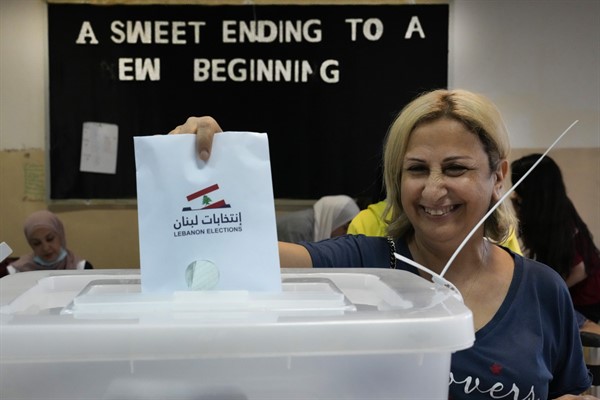Lebanon’s parliamentary elections produced some heartening news for critics of the political establishment, with protest candidates performing better than expected in Sunday’s polls. Initial results show that no fewer than 10 anti-establishment candidates won seats in parliament. This wouldn’t be enough to create a sizable counter-establishment bloc in the 128-seat parliament, but it would be enough to give a real platform to many dissenting views.
Hezbollah and its allies, which are collectively known as the March 8 bloc, lost ground, winning at least 61 seats, compared to 71 in the previous elections. Some of the candidates who won seats as independents will ally with either the March 8 bloc or its rival, the March 14 bloc. But it appears that neither side will control enough seats to select the speaker, setting the stage for the kind of drawn-out government formation negotiations that Lebanon is known for.
As a result, despite the noteworthy gains by opposition figures and other political outsiders in Sunday’s vote, the rotten status-quo bargain that has driven Lebanon to ruin is likely to continue. The worst predations imaginable have pushed a small, relatively prosperous country into a financial abyss. Yet the first elections after a hellish three-year period that featured a popular revolution, an economic depression of historical proportions, and the deadly Beirut port explosion evidently was not enough to dislodge the ruling clique of warlords, organized crime bosses and bankers.

